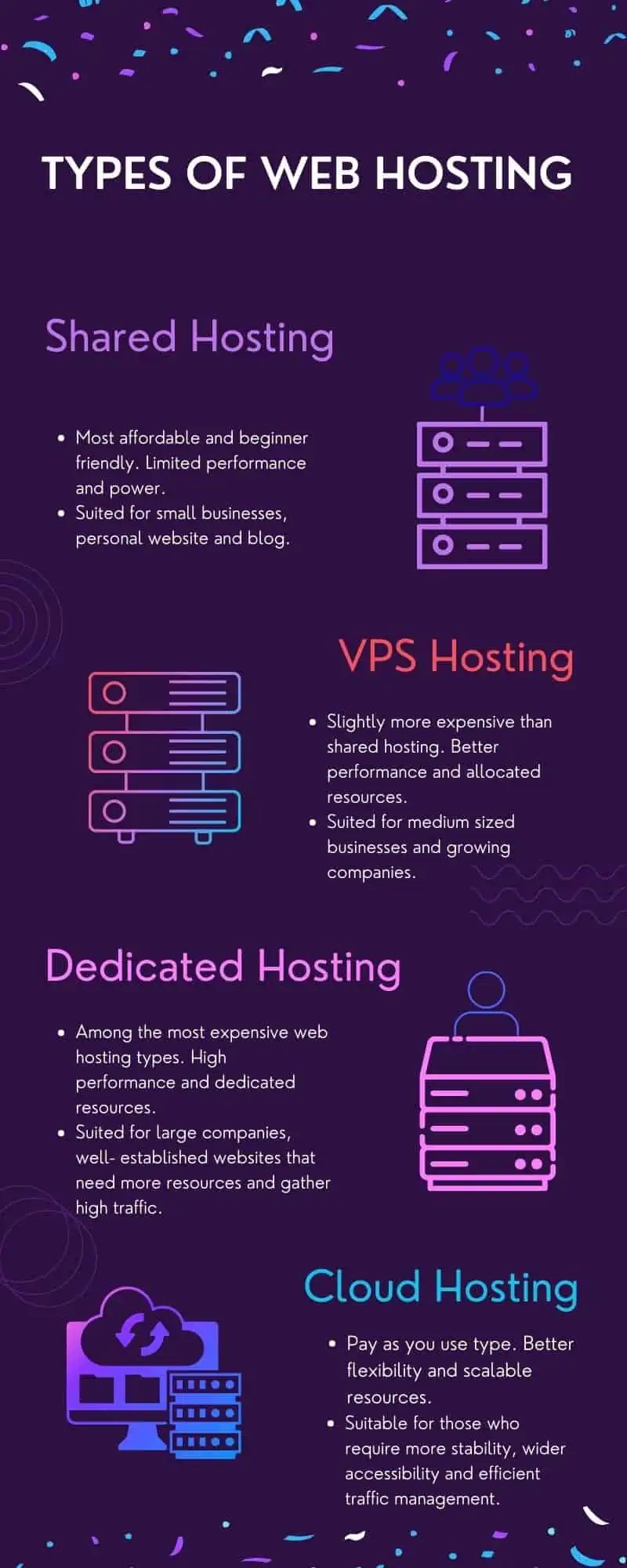Different Types of Web Hosting Explained
When setting up a website, one of the most important decisions you’ll need to make is choosing the right web hosting for your site. With so many options available, it can be overwhelming to figure out which type of hosting is best suited for your needs. In this article, we’ll break down the different types of web hosting and explain the pros and cons of each.
Shared Hosting
Shared hosting is the most popular and cost-effective option for hosting websites. With shared hosting, your website shares server resources with other websites on the same server. This means that your website’s performance can be affected by other websites on the server. However, shared hosting is a great option for small websites or blogs with low to medium traffic.
VPS Hosting
VPS (Virtual Private Server) hosting offers more control and flexibility compared to shared hosting. With VPS hosting, your website is hosted on a virtual server that mimics a dedicated server within a shared server environment. This allows you to have more control over your server resources and performance. VPS hosting is a good option for websites that require more power and resources than shared hosting can provide.
Dedicated Hosting
Dedicated hosting gives you complete control over a physical server that is dedicated solely to your website. This means that you have full access to all server resources and can customize the server to meet your specific needs. Dedicated hosting is ideal for websites with high traffic or resource-intensive applications that require maximum performance and security.
Cloud Hosting
Cloud hosting is a flexible and scalable hosting solution that utilizes multiple servers to host your website. With cloud hosting, your website’s resources are spread across multiple servers, which helps to ensure better uptime and performance. Cloud hosting is a good option for websites that experience fluctuating traffic levels or require high availability and scalability.
WordPress Hosting
WordPress hosting is specifically optimized for WordPress websites, providing features such as one-click WordPress installation, automatic updates, and specialized support for WordPress issues. WordPress hosting is a good option for individuals or businesses looking to easily set up and manage their WordPress site without worrying about technical aspects.
Reseller Hosting
Reseller hosting allows you to sell hosting services to your clients using the resources allocated to you by your hosting provider. As a reseller, you can create your hosting packages, set your prices, and manage your clients’ accounts. Reseller hosting is a good option for web developers, designers, or agencies looking to offer hosting services to their clients without the overhead of managing a server.
Conclusion
Choosing the right web hosting is crucial for the success of your website. Consider your website’s size, traffic volume, performance requirements, and budget when selecting a hosting type. Whether you choose shared hosting for its affordability or dedicated hosting for its performance, make sure to prioritize the needs of your website to ensure a smooth and reliable hosting experience.
